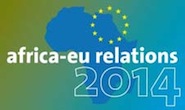Relations between the European Union and its partners in Africa, the Caribbean and the Pacific (ACP) are in a parlous state. Past readers of ECDPM’s annual Challenges Paper know that we regularly refer to ACP-EU relations as being at a critical juncture, and this is certainly true at the start of 2011. The EU’s credibility in much of the ACP is at an all-time low, and in the EU many seem to have lost faith in the future of the partnership with the ACP. Moreover, there is a collective failure to recognise that in the ...
The relationship between African, Caribbean and Pacific (ACP) countries and the European Union (EU) is at a crossroads. TNI has emphasised over the past months, that rebuilding trust between the ACP and the EU on the Economic Partnership Agreements requires a new political momentum. For its last issue of the year, ECDPM-ICTSD’s TNI has given the floor to those who hold the reins at the highest political level and includes exclusive interviews with the EU Commissioner for Trade, the Secretary-General of the ACP group and the Deputy Chairperson of the African Union Commission. Also included ...
Prior to launching the full evaluation of the European Commission’s support to conflict prevention and peacebuilding (CPPB) the EC’s Joint Evaluation Unit required that a concept study be undertaken to clarify the approach and questions to be tackled. ECDPM contributed to this. A part of the study was to tackle the key question of what is meant by an “integrated approach” to CPPB which is often seen as key to the EC (and EU as well as other agencies) vision for engagement. The concept study notes that there are four different, but inter-related, elements of ...
The latest issue of the Overseas Development Institute’s Development Policy Review Journal includes nine key articles in the field of aid, institutions and governance, with an introductory essay by ODI’s Director of the Africa Power & Politics Programme, David Booth. It explains that understanding of the relationship between institutions and economic progress made major headway in the 1990s. Since 2000 the pace of intellectual advance has been stepped up, with fresh thinking especially on governance systems and the role of aid. Three particular topics are addressed: the rise and transformation of institutional theory; aid, governance ...
ECDPM’s Isabelle Ramdoo gave a presentation outlining the forthcoming ECDPM Discussion Paper “Shopping for raw materials: Should Africa be worried about EU Raw Materials Initiative?” to the first meeting of ACP technical officials and ministers in charge of the development of mining resources held in Brussels from 13-15 December. The executive summary (click here for the French summary) of the draft paper was also provided to participants. The paper explains that despite Africa’s low share in exports of critical raw materials, the EU is likely to increase pressure on all its trading partners to secure ...
Taking governance seriously is profoundly discomfiting for development work Brian Levy argues on the World Bank’s Governance for Development blog. It forces each of us to examine critically and with humility what we bring to the development endeavor. The more we know about a country’s governance and political realities, the more we are confronted with the limitations – as well as continuing relevance – of our hard-won technical knowledge Levy explains. But, he continues, taking governance seriously opens us to understand things as they actually exist ‘on the ground’, and thus, makes us less prone ...
The European Parliament welcomes the adoption of the EU-Africa Strategic Action Plan 2010-2013 and hopes that the lessons will be learned from the difficulties which arose during the implementation of the first Action Plan and that there will be greater involvement by ministerial bodies and parliaments in the strategy’s implementation. It regrets that there is no financing plan to accompany the Africa-EU joint strategy and calls for the European Development Fund to come under the EU budget so that there may be parliamentary oversight. Parliament considers that the adoption of the new US ‘Conflict Minerals’ ...
In January 2011, the Conference of Heads of States and Governments of the African Union will meet in Addis Ababa. The focus will be on identifying obstacles and measures to be adopted to facilitate continental integration based on shared values. It will offer the possibility of an analytical and critical assessment of the implementation of the various African initiatives for an integrated, prosperous and peaceful Africa. It will also contribute to a proactive and inclusive reflection on the ways and means for an emerging, well governed, integrated Africa free of violence and insecurity. Many preparatory ...
In this extensive speech to the European American Press Club, President of the African Development Bank, Donald Kaberuka, argues that there is a new dynamic in Africa and that now is the time to look closely at the opportunities the continent of Africa offers in the process of stimulating the global economy. He addresses a series of pertinent questions relating to Africa’s economic growth: What are the drivers? Is this about Commodities and the “Asian Pull”? Is it another false dawn? Can it be sustained? What is the role of external aid? He also outlines ...
Complexity scientists are increasingly arguing for the use of ideas such as nonlinearity and interconnectednesss to better understand issues such as growth and market failures. Ben Ramalingam, in his Aid on the Edge of Chaos blog, explains ground-breaking research at the Harvard Center for International Development that has been looking at economic complexity in a rigorous fashion in order to develop testable hypotheses about products, networks and self-organising processes of economic wealth creation.

















